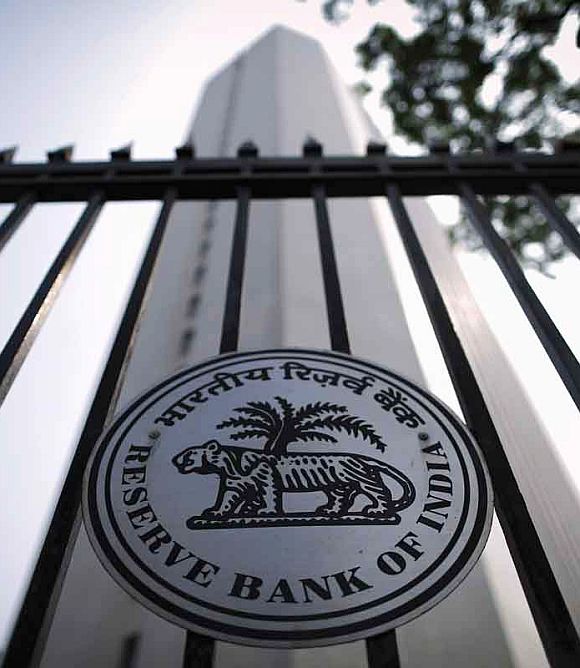 The government in consultation with the Reserve Bank of India on Friday sharply raised the Market Stabilisation Scheme ceiling to Rs 6 lakh crore from Rs 30,000 crore to mop up extra liquidity from the system in view of demonetisation.
The government in consultation with the Reserve Bank of India on Friday sharply raised the Market Stabilisation Scheme ceiling to Rs 6 lakh crore from Rs 30,000 crore to mop up extra liquidity from the system in view of demonetisation.
After the withdrawal of the legal tender character of the Rs 500/1,000 denomination notes with effect from November 9, there has been a surge in deposits with the banks, the RBI said in a notification.
Consequently, there has been a significant increase of liquidity in the banking system that is expected to continue for some time, it said.
"In order to facilitate liquidity management operations by the RBI in the current scenario, the government has, on the recommendation of the RBI, decided to revise the ceiling for issue of securities under the MSS to Rs 6,000 billion," it added.
MSS bonds are issued with the objective of providing the central bank with a stock of securities with which it can intervene in the market for managing liquidity. These securities are not issued to meet the government's expenditure.
As part of liquidity management exercise, the RBI last week asked lenders to temporarily maintain an incremental cash reserve ratio of 100 per cent.
CRR is the portion of the deposits banks are required to park with the Reserve Bank. The actual current rate of CRR is 4 per cent.
RBI Governor Urjit Patel had said the RBI announced an incremental CRR (Cash Reserve Ratio) of 100 per cent "because of the large increase in deposits of banks on account of the return of Rs 1,000 and Rs 500 notes" and the decision will be reviewed immediately once the government issues adequate quantum of MSS bonds which they have promised to do.
"While the RBI has a significant stock of government securities available, we felt that if the increase in deposits continues we may fall short, hence the decision. Once the government issues adequate quantum of MSS bonds, which they have promised to, we will immediately review the incremental CRR," he had said.
Photograph: Reuters.










 © 2025
© 2025